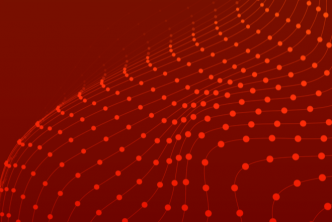Clinical Registries and RWD: Identifying Barriers and Solutions
Exploring barriers and solutions to using registries and real-world data to improve clinical trials.
Real-world evidence is an extremely important element for regulatory and payer approval in clinical trials. Registry data helps stakeholders better understand the natural history of a disease, find optimal pivot points for where to position treatment to where it will be most effective and establish new primary secondary endpoints that'll be acceptable to the regulators for a more integrated drug development approach. Yet, here is hesitancy from payers and even developers themselves, when it comes to collecting valuable real-world data, proving the need for registries even more.
Mike D’Ambrosio, VP, Head of Real-World Evidence Solutions, Susan Goodlow, VP, RWE and Late Phase Operations and Ray Huml, Head of the Rare Disease Consortium at Syneos Health, recently sat down to discuss the importance of registries for clinical research and perceived difficulties surrounding the creation and use of registries with suggested solutions:
- It will prove too difficult to collect high-value data over a long-term study from patients who already have a high-degree of burden. Regulators are open to innovative ways to reduce burden, not just in the patients and caregivers, but also to reduce the burden on the treating physicians or wraparound care environment to collect data. The use of technologies that allow more passive collection of data, through electronic health data resources and tokenization, can help with this concern as well.
- Do registries and real-world data really have an impact on patient outcomes? How can we tell? For a drug to be approved and for payers to reimburse, it is becoming vastly important to show value to the end user, which is the patient. What is their experience? Have we reduced the burden on their participation and care? But also, real-world data gives back to the community. It gives back to the disease community and advocacy groups, empowering them also with data. Sharing back disease information back into the community for the wider benefit of that patient segment, as well as future development for therapies is becoming the norm with the use of registries, which can only benefit patients and caregivers within and outside of clinical trials.
- Can registries help with the ultra-rare diseases with multiple subtypes? A lot of companies and sponsors are targeting ultra-rare diseases, like limb-girdle muscular dystrophy that has at least 35 different plus subtypes. If developers look for an approval in just one subset, developers also need to prove to payers the value of the drug by seeing if a treatment is applicable across sub-types. If you're only using maybe a certain technology that's only amenable to a certain mutation or a genetic mutation, would it be paid in other ones? That nuanced type of information can be obtained through registries and direct feedback, like the patient reported outcomes. Registries get feedback that's essential to helping patients feel better while being a lower economic burden to the healthcare system.
The ability to combine patient input, including tokenization, with good data-capture will continue to evolve with the growth of technology. The more data we can capture upfront and how it changes over time will increase the value of follow-up studies.





